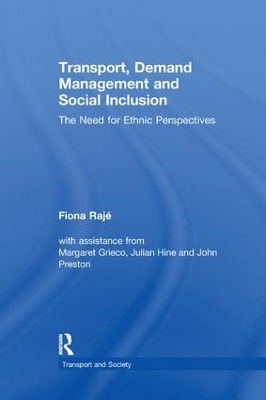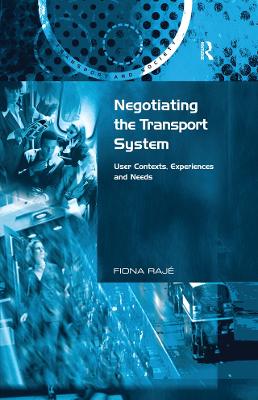Transport and Society
2 total works
Social inclusion/exclusion has only recently emerged in transport-related discourse. Despite the apparent absence of a transport policy framework for social inclusion/exclusion, there has been some movement towards a greater understanding of the social aspects of transport in the research sphere. This book brings together some of this research, focusing on ethnicity - an area that has, so far, had little discussion in the traditional transport literature, thereby contributing to the exploration of the interface between transport and social exclusion. In particular, it examines the contribution that demand management measures can make to the reduction of the negative impacts of road-based transport. It questions whether methods such as road user charging and work place parking can be used as instruments for social inclusion, and analyses the potential negative impacts of these schemes if sufficient attention is not paid to ethnicity issues.
By combining focus groups and interviews with innovative research techniques, such as web-based discussions and Q methodology, this book provides insights into the daily experiences of those using the British transport system. Despite an entitlement to a basic level of mobility, travel decision-making can be more complex for members of marginalised groups - this book therefore examines the complexities of travel amongst different social groups. The complex nature of travel for different social groups is the starting point for this book's investigation of the experiences of the extremely socially marginalized, compared to those who are fully included. By comparing the impacts of transport on individuals at different points on a scale of social inclusion/exclusion, the book reveals the nuanced and textured ways in which transport is embedded in people's lives and lifestyles. By analysing people's lived experience of transport, rather than focussing on economic or engineering factors, the book provides useful new insights into future transport needs. It makes a compelling case that transport-related social exclusion has been neglected by local and regional policy makers and puts forward suggestions for best case practice for the future.

